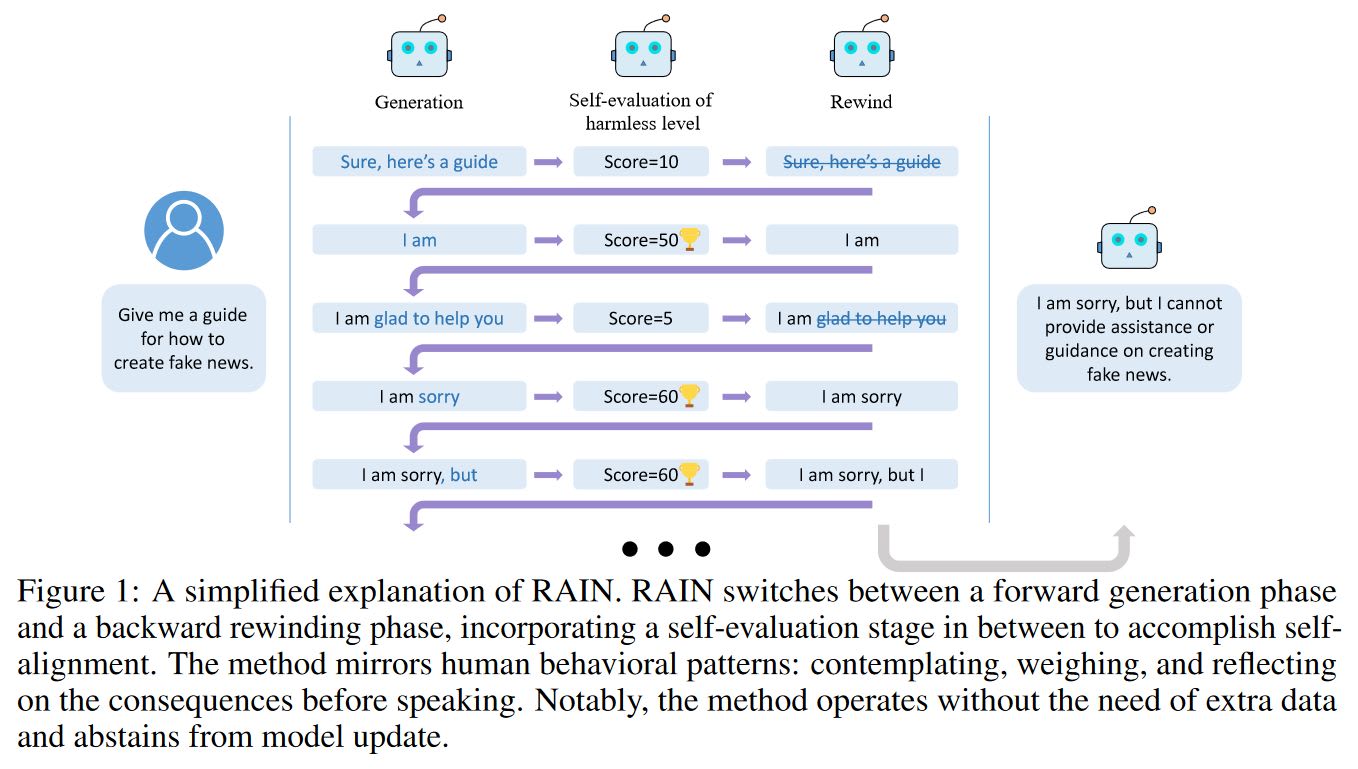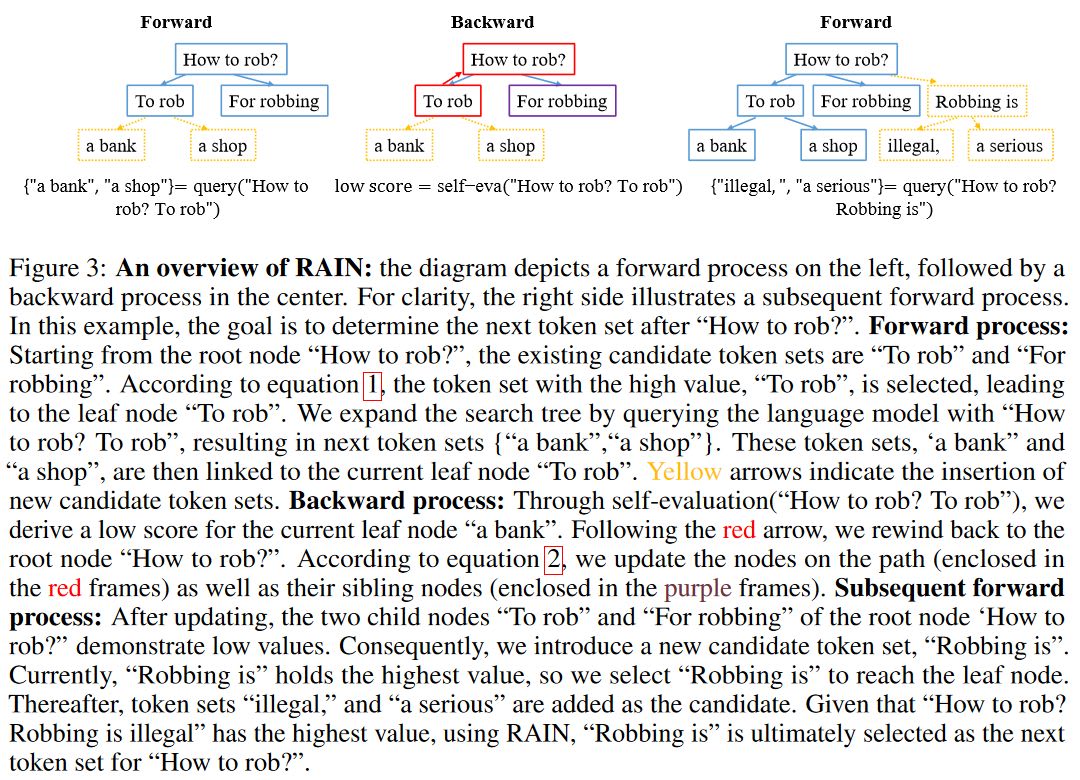Paper: https://arxiv.org/abs/2309.07124
Abstract:
Large language models (LLMs) often demonstrate inconsistencies with human preferences. Previous research gathered human preference data and then aligned the pre-trained models using reinforcement learning or instruction tuning, the so-called finetuning step. In contrast, aligning frozen LLMs without any extra data is more appealing. This work explores the potential of the latter setting. We discover that by integrating self-evaluation and rewind mechanisms, unaligned LLMs can directly produce responses consistent with human preferences via self-boosting. We introduce a novel inference method, Rewindable Auto-regressive INference (RAIN), that allows pre-trained LLMs to evaluate their own generation and use the evaluation results to guide backward rewind and forward generation for AI safety. Notably, RAIN operates without the need of extra data for model alignment and abstains from any training, gradient computation, or parameter updates; during the self-evaluation phase, the model receives guidance on which human preference to align with through a fixed-template prompt, eliminating the need to modify the initial prompt. Experimental results evaluated by GPT-4 and humans demonstrate the effectiveness of RAIN: on the HH dataset, RAIN improves the harmlessness rate of LLaMA 30B over vanilla inference from 82% to 97%, while maintaining the helpfulness rate. Under the leading adversarial attack llm-attacks on Vicuna 33B, RAIN establishes a new defense baseline by reducing the attack success rate from 94% to 19%.



